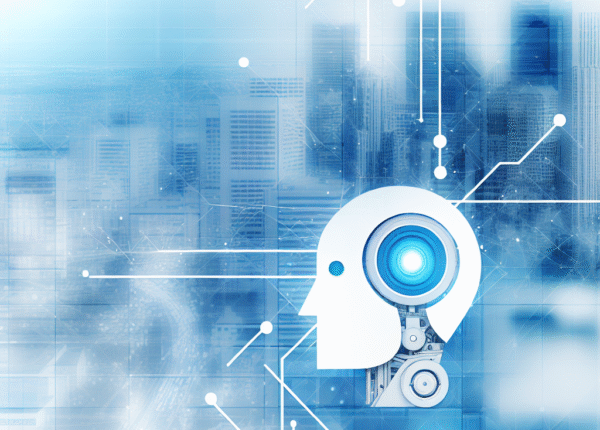AI is no longer a speculative future—it has become a daily accelerant that touches classrooms, boardrooms, and government corridors alike. The debate around generative AI is no longer merely about clever hooks or flashy demos; it is about how we learn, how we govern, and how we share the spoils of rapid technological change. In universities, concerns persist that student misuse of large language models could bypass reading original material, erode reflection, and produce outputs that feel intelligent but are dull or even incorrect. A recent Guardian letter from Professors Leo McCann and Simon Sweeney warned that some AI-assisted work undermines learning, and that ambiguous rules around assessment can push students toward shortcuts. Taken together, these voices frame a broader truth: AI’s promise to accelerate understanding sits beside a risk that critical thinking could atrophy if we lean too heavily on machine-generated outputs. The task today is to balance AI’s utility with disciplined pedagogy that keeps students actively engaging with ideas beyond the screen.
Governance and policy are moving in tandem with classroom debates. In Albania, the world’s first AI minister was appointed to oversee public procurement—a bold attempt to curb corruption and to sharpen EU aspirations through algorithmic governance. This move sits alongside a wave of corporate and public-sector experimentation: Capgemini’s latest findings show generative AI adoption has grown fivefold, with AI expected to become an active team member within the next 12 months. The implication is clear: organizations are integrating AI into decision-making and operations at an accelerating pace. Yet with greater automation comes the need for robust accountability, transparent governance, and a framework that clearly assigns responsibility for AI-driven outcomes, from procurement to project planning. The challenge will be ensuring that human judgment remains central even as algorithms take on more complex tasks.
As markets adapt, conversations about wealth, inequality, and productivity intensify. Proponents celebrate AI as a catalyst for unprecedented growth, but critics warn that the gains could concentrate among a shrinking group of firms and investors who own the platforms and data that power these systems. Writings on AI’s impact—such as discussions around Palantir’s earnings and the broader claim that AI could intensify wealth concentration—underscore a pressing question: how do we distribute the value AI creates in a way that supports broad-based opportunity and social cohesion? Without thoughtful policy designs, taxation, and public investment that keep pace with innovation, the AI revolution could widen gaps even as productivity rises, leaving workers and communities behind.
Culture, art, and everyday life are not immune to AI’s pull. A chorus of voices among UK artists has urged leaders to protect creators’ rights in the face of AI’s data-harvesting capabilities, warning that the technology could repurpose or misappropriate artistic works. Meanwhile, families are navigating new frontiers in AI toys and consumer devices, raising questions about privacy, consent, and the role of AI in shaping early childhood experiences. Reflections drawn from classic narratives—such as a German fairytale that asks what it means to have one’s wishes fulfilled—remind us that technology’s power must be tempered by human values. The conversations span from studio floors to living rooms, illustrating how AI touches creativity, intimacy, and culture in real time.
Looking ahead, the path is not about resisting AI or surrendering to it, but about shaping a cooperative future in which technology amplifies human capacities while preserving critical thinking, fair governance, and cultural integrity. This requires designing education that teaches students to read original material alongside AI-generated summaries, implementing procurement and accountability frameworks that keep AI’s influence transparent, and protecting artists’ rights in a data-driven economy. It also means recognizing AI’s potential to enhance collaboration and innovation when guided by robust ethics and inclusive policy. By weaving together insights from education, governance, economics, and culture, today’s AI News offers a holistic view of how the AI era is reshaping our world—and how we can navigate it with intention and humanity.
Sources
- How AI is undermining learning and teaching in universities — Guardian Staff
- AI-Generated Government Minister Appointed in Albania — Graham Hope
- Generative AI Adoption Grows Fivefold, Capgemini Reports — Scarlett Evans
- Self-Driving Architecture With Advanced AI Revealed — Graham Hope
- AI will make the rich unfathomably richer. Is this really what we want? — Dustin Guastella
- Google announces £5bn AI investment in UK before Trump visit — PA Media
- To understand how AI will reconfigure humanity, try this German fairytale — Clemens J Setz
- Top UK artists urge Starmer to protect their work on eve of Trump visit — Dan Milmo
- ‘I love you too!’ My family’s creepy, unsettling week with an AI toy — Arwa Mahdawi
- ‘I have to do it’: Why one of the world’s most brilliant AI scientists left the US for China — Chang Che
- Australian culture, resources and democracy for $4,300 a year? Thanks for the offer, tech bros, but no thanks — Peter Lewis
Related posts
-
AI News Roundup: Suffering, AI Doctors, and a Slashed Abbey
AI News Roundup: Suffering, AI Doctors, and a Slashed Abbey In today's AI news roundup, we explore a...
31 August 202585LikesBy Amir Najafi -
Daily AI News: Breakthroughs, Policy Shifts, and Industry Pulse
Today's AI News digest gathers stories from research labs, startups, and policy desks, weaving them into a single...
11 October 202540LikesBy Amir Najafi -
AI’s Climate Footprint and the New Hardware Era: From Datacenters to Disaggregated Inference
AI's climate footprint has become a focal point as the world questions the energy intensity of the datacenters...
3 January 202609LikesBy Amir Najafi

